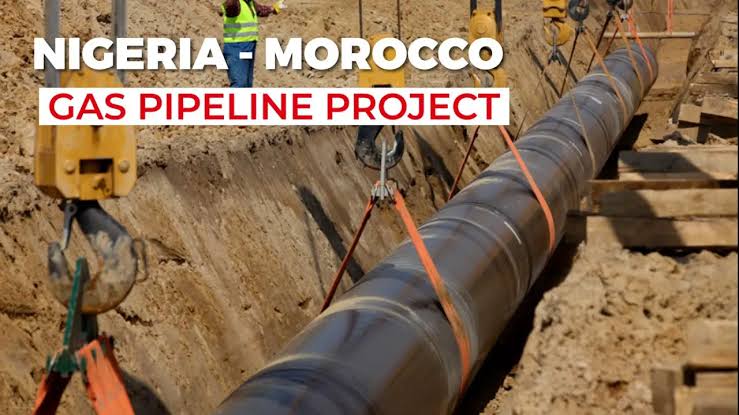In a significant stride towards realizing the $25 billion Nigeria-Morocco gas pipeline project, the Federal Government has heightened discussions with the Kingdom of Morocco.
The talks, held on Wednesday, brought together the Minister of State for Petroleum Resources (Gas), Ekperikpe Ekpo, and the Moroccan Minister of Energy Transition and Sustainable Development, Ms. Leila Benali. Leading the discussions were NNPC Limited’s Executive Vice President, Gas, Power & New Energy, Mr. Olalekan Ogunleye, and the Director General of the Morocco National Office of Hydrocarbons and Mines (ONHYM), Mme Amina Benkhadra.
The focal point of the discussions was to expedite the Final Investment Decision (FID) process for the Nigeria-Morocco Gas Pipeline Project, aligning with the Memoranda of Understanding (MoUs) signed between the two nations in Abuja in 2022. The project holds strategic importance for both countries and the broader African continent, aiming to combat energy poverty in Africa. The Cooperation Agreement for the 48” x 5,300Km pipeline, stretching from Nigeria to Dhakia (Morocco) and 1,700km from Dhakia to Northern Morocco, was initially signed in 2017. It boasts a capacity of 30 billion cubic meters (bcm) per year, equivalent to 3.0 billion standard cubic feet of gas per day.
This expansive pipeline will traverse through the Republic of Benin, Togo, Ghana, Cote d’Ivoire, Liberia, Sierra Leone, Guinea, Guinea-Bissau, Gambia, Senegal, Mauritania, and conclude in Morocco, with a spur extending to Spain. Due to the project’s international nature, the ECOWAS Commission plays a crucial role in facilitating inter-governmental treaties, hosting government agreements, establishing the Pipeline Higher Authority, and ensuring alignment with AU, UN, and other relevant international bodies.
The Nigeria-Morocco gas pipeline project holds multifaceted significance. Firstly, it is poised to drive the monetization of Nigeria’s abundant gas resources. Additionally, it aims to maintain NNPC Ltd.’s leadership in the energy sector across Africa and foster economic and regional cooperation among African nations. The discussions between Nigeria and Morocco underscore the commitment to advancing this transformative project that not only fortifies bilateral relations but also holds the potential to reshape the energy landscape in the region.
The meeting between the ministers and executives of both countries is a testament to the collaborative efforts needed to overcome the complexities associated with such an extensive and vital infrastructure project. As both nations work towards expediting the Final Investment Decision, the pipeline project remains a beacon of regional integration, economic development, and sustainable energy solutions for the African continent. The achievements and progress in these discussions mark a significant step towards realizing the vast potential of the Nigeria-Morocco gas pipeline and the collective benefits it holds for the participating nations.










Join our Channel...